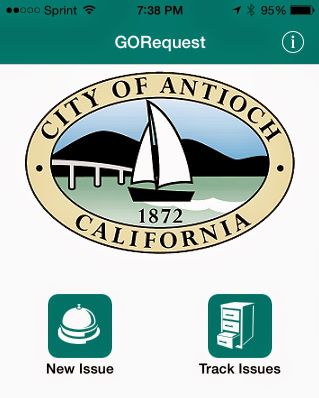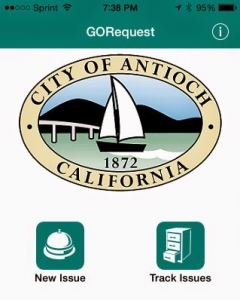
Communication and information-sharing between public officials and citizens is critically important. Both, however, are costly and time-consuming. Budget constraints have made it even harder for cities and state agencies to handle citizen calls, questions and information requests in an efficient way. Communication between the parties can be frustrating for government employees and even more so for citizens. Mobile apps and online portals offer attractive options and many public entities are championing this new and efficient information-sharing with taxpayers.
 In today’s world, busy people tend to want the convenience and efficiency of mobile apps or Internet access. Phone calls and other forms of communication require more time and effort. Cities seem to be reacting quickly while state and federal agencies are somewhat behind the curve. That’s unfortunate because even small cities are experimenting with different types of mobile apps and serving as incubators for new development.
In today’s world, busy people tend to want the convenience and efficiency of mobile apps or Internet access. Phone calls and other forms of communication require more time and effort. Cities seem to be reacting quickly while state and federal agencies are somewhat behind the curve. That’s unfortunate because even small cities are experimenting with different types of mobile apps and serving as incubators for new development.
With a population of 42,000, the city of Manassas, Va., launched an online portal to deal with the constant influx of phone calls with questions that the City Public Works division received each day. Callers had questions about trash schedules, leaf pickup, recycling processes, billing, etc. Implementation of the portal took only a few months and the project has been so successful, it is about to be expanded.
The city of Antioch, Calif., created a mobile app that residents adapted to quickly. The app allows residents to report problems of all types – abandoned vehicles, graffiti, potholes, water leaks, motor vehicle accidents, etc. Thousands of reports are filed each year through the mobile app and the communication is not only efficient, it is definitely less costly.
Officials in Albany, Ore., built a public portal so that taxpayers could see city expenditures. The portal provided the latest budgets as well as daily updates related to expenditure data. Total transparency is something that pleases taxpayers and the city says the portal project has received very positive response. Many cities allow citizens to track their utility costs online and others have portals that provide all types of transaction options.
Cities have developed mobile apps that allow citizens to report suspicious behavior, provide crime-related information and announce upcoming events. Field workers use mobile apps for reporting, time tracking and transmitting photos for internal files.
The trend toward apps and portals is growing so quickly that government technology teams are struggling to keep pace. Lots of public-private collaboration is occurring and that is a very good thing. Citizens want mobility tools and transactions to be available online or through mobile apps. The federal government has created a Mobile Program Management Office with a mandate to make government available anytime, anywhere on any device today and tomorrow. That is a beautiful concept to most taxpayers.
